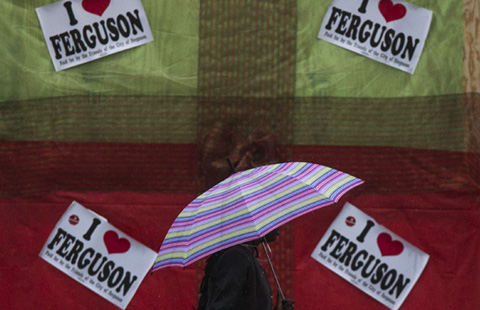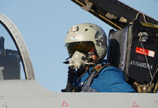Real-time data is answer to Ebola crisis - UNICEF
Updated: 2014-11-25 10:07
(Xinhua)
|
||||||||
UNITED NATIONS - As the global community battles the Ebola crisis sweeping across West Africa, the United Nations Children's Fund (UNICEF) is investigating new approaches to combat the epidemic.
Right now, the newly created Innovation Unit of UNICEF is working with real-time data to create an Ebola response plan, Christopher Fabian, the co-leader and co-creator of the Innovation Unit, said in an interview with Xinhua.
The Unit was formed seven years ago and is focused on using emerging technologies to deliver better results for children, said the 2014 Innovation Annual Report.
In terms of real-data usage to help stop Ebola, Fabian said, "real-time data can immediately shed light on what works and what doesn't and ... we can act immediately."
As of now, the Innovation Unit is working on a set of applications for health workers that will process real-time data through a basic mobile phone, Fabian said, adding "this (method) will eliminate the paper based waiting period."
So the program will provide direct and immediate information to governments about Ebola cases, he said.
To date, the World Health Organization has reported 15,351 Ebola cases in eight countries since its outbreak, with 5,459 reported deaths, mostly in Sierra Leone, Liberia and Guinea, the three hardest-hit West African countries. Mali, previously free from the virus, is the latest country to register Ebola cases, six in total, all of which have been fatal.
At present, the governments of Guinea, Liberia and Sierra Leone are faced with dealing with the most complex outbreak since the virus's discovery in 1976.
Aside from the three West African countries, there is a second outbreak in the areas of Boende, Equateur and isolated parts of the Democratic Republic of the Congo (DRC).
To deal with the growing concern by the international communities over this epidemic, the Innovation Unit is working on a U-Report system that collects Ebola data from youth, Fabian said.
"U-Report is a way to engage young people in getting and providing information about Ebola or about other health needs they might have," the senior UNICEF official said on the free SMS-based system.
As of now, Uganda has over 280,000 users and a twenty percent response rate, he said.
Statistically speaking, that translates to about forty- to fifty-thousand responses from youth, he said about the three-year- old program. Now, U-Report is in Liberia, the official added.
"So far it's in Alpha right now (which means) it isn't really open to the public, but we have about 550 users as of today and we 're looking at growing that to over 100,000 in the next six months, " he said.
"So people (are) using the system before it's even really advertised and we're suddenly able to get and provide information in real-time to children in some really difficult to reach areas in Liberia," Fabian said.
More specifically, the West African area has experienced over 7, 000 Ebola cases and almost 3,000 confirmed cases of the virus within the country since March of this year, according to the United States Centers for Disease Control and Prevention.
Consequently, the U-Report system is giving the international community an answer to the crisis.
- SAT scores canceled for some test-takers in China, Korea
- India plans high-speed rail project with China
- S. Korea to test-transport Russian coal import via DPRK port
- Dozens take refuge from Japan quake aftershocks
- S. Korea holds drill in islets disputed with Japan
- Yingluck mulls over returning to politics

 Forbidden City more welcoming
Forbidden City more welcoming
 Olympic champ Sun Yang failed doping test in May
Olympic champ Sun Yang failed doping test in May
 Top 10 kinds of foreigners in China
Top 10 kinds of foreigners in China
 Trending: Hangzhou man licks out painting
Trending: Hangzhou man licks out painting
 Rio 2016 mascots combine Brazilian fauna, flora
Rio 2016 mascots combine Brazilian fauna, flora
 Sports moments of the week: Nov 17-23
Sports moments of the week: Nov 17-23
 42nd American Music Awards held in Los Angeles
42nd American Music Awards held in Los Angeles
 Anxious Ferguson waits for grand jury's decision
Anxious Ferguson waits for grand jury's decision
Most Viewed
Editor's Picks

|

|

|

|

|

|
Today's Top News
Hagel resigning as US defense secretary
Growth in telemedicine expected with aging population
Nation to top green list by 2030
SAT scores canceled for some test-takers in China, Korea
Country enhances security checks for govt websites
India plans high-speed rail project with China
Wall St ends at records on central bank action
China's interest-rate cut shows willingness to stimulate growth
US Weekly

|

|







